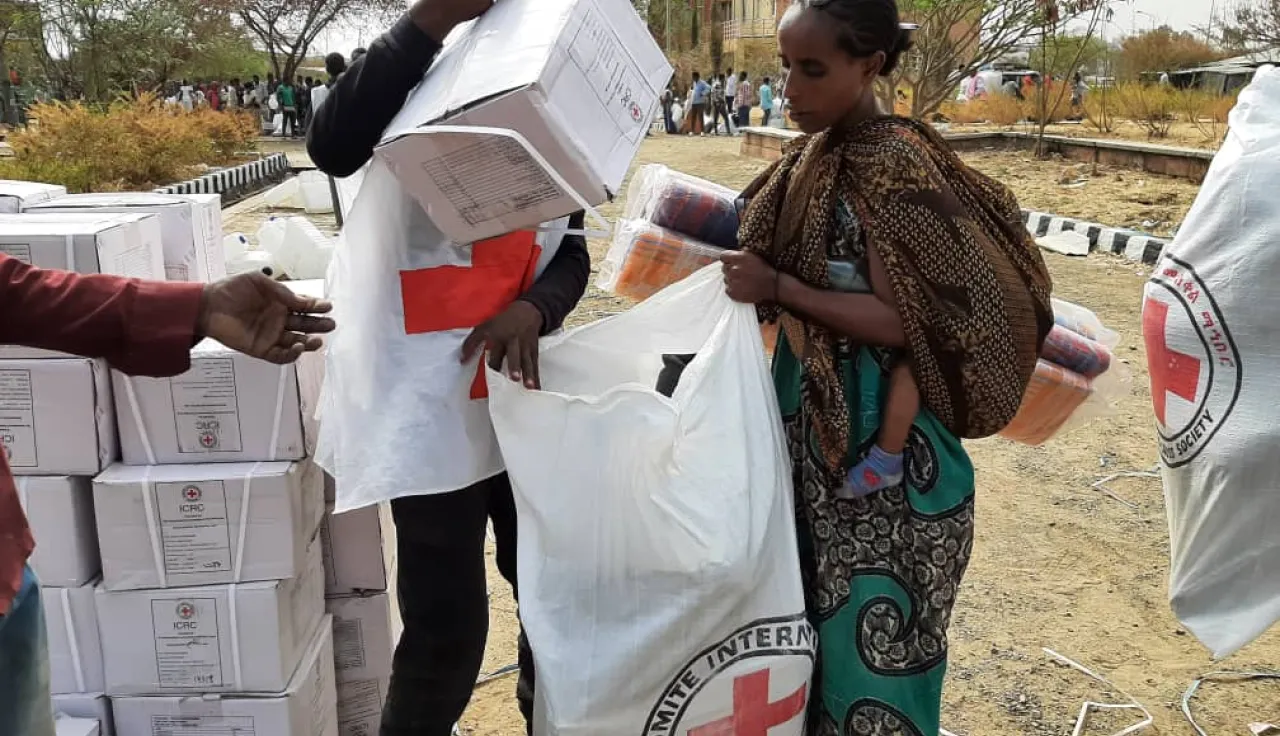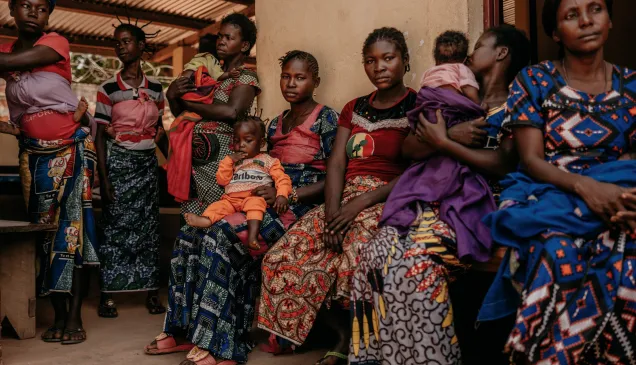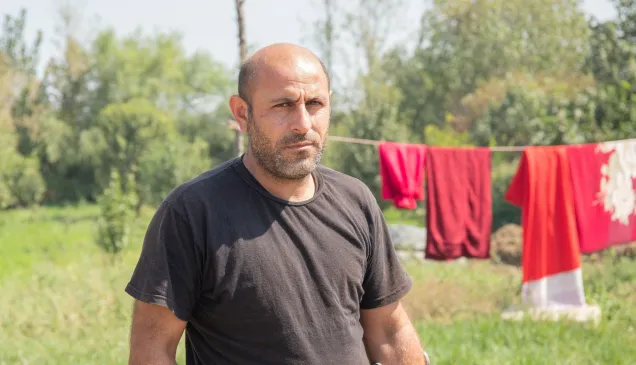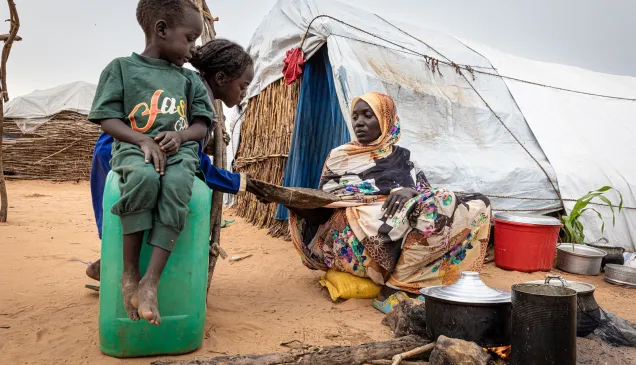Operational update on Ethiopia: ICRC concerned about humanitarian situation in rural areas of Tigray

Fighting in Ethiopia’s Tigray region erupted over four months ago. While electricity, communication networks and water supply are gradually being restored and markets are reopening in the main towns, humanitarian access in rural areas, and off the main roads, remains challenging because of the volatile security situation.
There is not enough visibility on the humanitarian needs in many rural areas and reaching them in a safe manner is one of the main challenges and priorities. The International Committee of the Red Cross (ICRC) estimates that the food supplies in rural areas of Tigray are dangerously low, as many people lost both stores and livelihoods when they fled their homes. Lack of access to health services and lack of security are other major concerns.
Throughout the region, displaced people and the communities hosting them, face multiple needs including clean water, food and shelter. As displaced people continue arriving in major towns, essential public services and infrastructures are struggling to cope with the increasing demand. Many family members became separated when they fled their homes. Many are still unable to find their relatives, even if some communication networks have been restored. Following months of fighting, communities continue to live with the heavy burden of fear and uncertainty.
From the onset of fighting, the ICRC remained present in the region, working together with the Ethiopian Red Cross Society (ERCS) to provide emergency assistance to people in Tigray and to those, who fled to the neighboring regions.
To continue responding to the pressing humanitarian needs, the ICRC has been scaling up its activities in Tigray. Improving access to health is the top priority. The organization has supported two referral hospitals and four general hospitals to enable them treat weapon wounded patients and maintain essential medical services. Supporting primary health care facilities is now an even greater priority as a majority of primary health centers in the region are not functioning. These facilities play a pivotal role, normally supposed to attend to 70% of all patients and ease pressure on hospitals.
Besides delivering emergency assistance, the ICRC has been helping family members re-establish contact, visiting people detained in relation to the current events and promoting international humanitarian law.
— ICRC Ethiopia (@ICRCEthiopia) March 10, 2021
The main highlights of the ICRC activities between November 2020 and February 2021
Supporting health facilities
The ICRC has been delivering medical supplies to 8 health facilities in Tigray and 9 health facilities in Northern Amhara.
- Medical supplies delivered to health facilities in Mekelle, Adigrat, Adwa, Axum and Shire would suffice to treat 500 critically injured or 2'100 moderately injured patients. Besides medicines were delivered to treat some 6'900 general medical cases and 2'000 diabetes patients.
- The Regional Health Bureau in Tigray received supplies for the primary healthcare service to treat 10'000 patients, and surgical supplies for 150 critical injuries and 600 moderate injuries.
- Health facilities in Gondar received supplies to treat 250 critically or 950 moderately injured patients.
- Health facilities in North and SouthWollo received supplies to treat 300 critical or 1'100 moderately wounded people.
- To improve pre-hospital care, the ICRC assisted zonal branches of the Ethiopian Red Cross Society with medical supplies to refill 650 first aid kits.
- Some 3'300 people, including patients, medical staff and their family members in Shire General Hospital, Five Angels, Alganesh and Humer Health Centres in Shire, St. Mary Hospital in Axum and Don Bosco General Hospital in Adwa received 85metrictonnes of flour and 1'500 litres of vegetable oil.
- Mekelle Hospital received spare parts for the water treatment system.
Improving access to water and sanitation
The ICRC improves access to water and sanitation for displaced people and host communities and works with the regional water bureau to repair essential water infrastructure
- It donated shower and toilet facilities for 400 people Loza-Mariam camp for displaced people in Gondar.
- It trucks 64'000 litres of water per day for 7'000 displaced people in Mekelle, 64'000 litres of water per day for 4'300 people in Shire and 30'000 litres per day for 5'000 displaced people in Axum.
- The ICRC donated 5tons of calcium hypochlorite to Mekelle water treatment plant to produce water for 800'000 people for one month.
We have delivered our support to the Mekelle water treatment plant, which is serving more than 600,000 residents and about 200,000 IDPs in Mekelle city, #Tigray region. Previously, We donated borehole pumps for sites operating parallel with the same treatment plant. pic.twitter.com/buzF2S5t5E
— ICRC Ethiopia (@ICRCEthiopia) March 8, 2021
Delivering emergency assistance
The ICRC has been delivering essential household items to displaced people to respond to some of the essential needs. It delivered emergency items to:
- 5'000 households in Shire;
- 2'860 households in Adigrat;
- 1'146 households in Mekelle;
- 814 households in Abdulrafi;
- 50 households in Gondar.
Providing mobility devices and physical rehabilitation
The ICRC supports Physical Rehabilitation Centres, so people who lost limbs as a result of their injuries can receive physical rehabilitation and mobility devices.
- It donated 2'050 crutches to Bahir Dar Hospital and 2'050 crutches and 4 wheelchairs to Dessie physical rehabilitation center.
- 28 members of the Ethiopian Physiotherapy Association were trained to provide volunteer services in northern Ethiopia public hospitals, including Dessie, Woldia, Kobo, Alamata, Mersa, Debark and Bahir Dar.
- Patients in Dessie and Bahir Dar hospitals received early rehabilitation services.
- Mekelle physical rehabilitation center admitted 70 patients and discharged 35, after they received physiotherapy services, artificial limbs and mobility aids.
Helping people re-establish contact with their relatives
The ICRC works closely with the Ethiopian Red Cross Society and Sudanese Red Crescent to restore contact between family members.
- Within Ethiopia, 4'333 families re-established contact through phone calls and "safe and well" messages.
- In Sudan, almost 13'000 Ethiopian refugees received an opportunity to contact their families.
Displaced people following the crisis in Tigray lack food, water and access to health care. Among them there are pregnant women and children in need of urgent support.
Many lost contact with their loved ones. pic.twitter.com/4eTcM0zRCB— ICRC Africa (@ICRC_Africa) February 18, 2021
Working with the Ethiopian Red Cross Society (ERCS)
The ERCS received help with ambulance maintenance and financial support to ensure volunteers' rapid deployment during the crisis.
- 42 ambulances provided services to almost 4'900 weapon wounded people.
- First Aid refresher training was conducted for ERCS volunteers to enable them to resume services.
- Multiple joint convoys facilitated the delivery of 40 tons of food and 400 EHI kits to 3 ERCS branches within Tigray.



